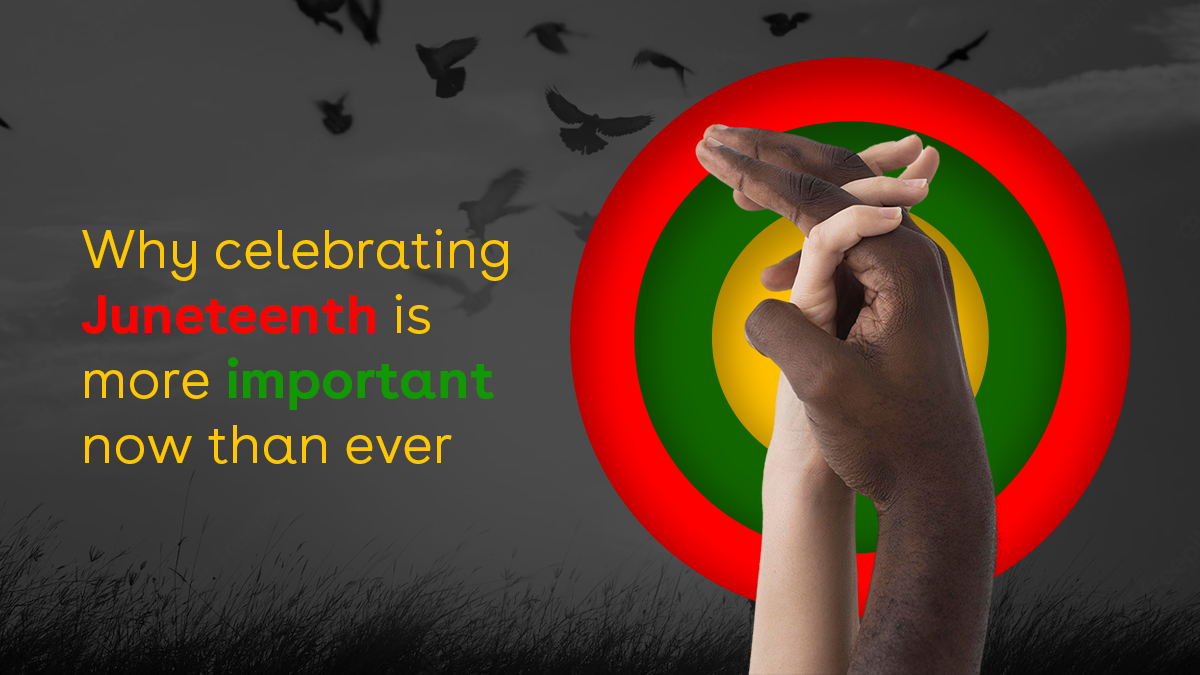It took 100 years for civil-rights legislation to be passed after the Civil War, Juneteenth too was declared a federal holiday in 2019, nearly 156 years after it was first celebrated.
As we look to restart and reset the way we live and work in the new normal, we also need to strive towards ensuring that the racial equity of our words isn’t eschewed by our actions. And that means moving beyond the school of thought that thinks a paid day off is sufficient to mark this historic event.
While Black workers account for 12% of the private sector workforce in the USA, the rate of unemployment among the community stands at 8.6% as of 2021. This is well over the national average of 5.3 percent. This tells us that current D, E & I efforts are simply spinning in place as opposed to advancing the cause of African American empowerment in corporate America.
Historically, efforts for racial equality have been too little too late, and the national celebration of emancipation has reverted to a purely historic endeavor, one stripped of the demand for full equality.
To celebrate Juneteenth in a powerful and meaningful manner, we need to engage employees by telling powerful stories from the past. The narrative of racial equity must also be recrafted to a more practical one. One that dispels the myth that all men are created equal in a modern corporate America.
Another myth is that fixing the problem of racism is up to the government alone. 68% of respondents polled by the 2021 Edelmann Trust Barometer believe that CEOs must step in when a government does not fix societal issues. Business stakeholders from employees to consumers have grown increasingly vigilant of how well companies are driving change beyond the purview of profit. These heightened expectations of corporate America, mandate a focus on social engagement with rigor and thoughtfulness. This is yet another reason why celebrating Juneteenth is more important than ever.
Another reason we need to honor the day and engage employees is the troubling fact that Juneteenth has often been overlooked by non-Black Americans and omitted from history books. The fact that South Dakota refused to even acknowledge the day is a further reason to amplify the stories of Juneteenth. Engaging employees in order to stem the systemic racial inequity that still holds sway among the collective majoritarian psyche is the need of the hour. ‘Soft racism’, negative stereotypes, and hidden prejudices need to be rooted out, and the only way to do this is to provide a platform to the community.
The stories from the community, both past, and present need to be highlighted. Corporate entities must engage with and be a meaningful part of the narrative to achieve this.
So that begs the question, how does an organization celebrate Juneteenth in a meaningful way? Goodera’s campaign for Juneteenth in 2022, aims to further the cause and turn 10,000 employees into volunteers for racial equality.
To achieve this, Goodera is working with corporates, local stakeholders, and nonprofits. The campaign revolves around volunteering events and opportunities that include dialogue, capacity-building, and advocacy all of which are designed to highlight the stories of the community and keep the memory of why Juneteenth began alive.
To quote W.E.B Du Bois, “This the American black man knows: his fight here is a fight to the finish. Either he dies or wins. If he wins it will be by no subterfuge or evasion of amalgamation. He will enter modern civilization here in America as a black man on terms of perfect and unlimited equality with any white man, or he will enter not at all. Either extermination root and branch, or absolute equality. There can be no compromise. This is the last great battle of the West.” This is why celebrating Juneteenth is more important now than ever.


